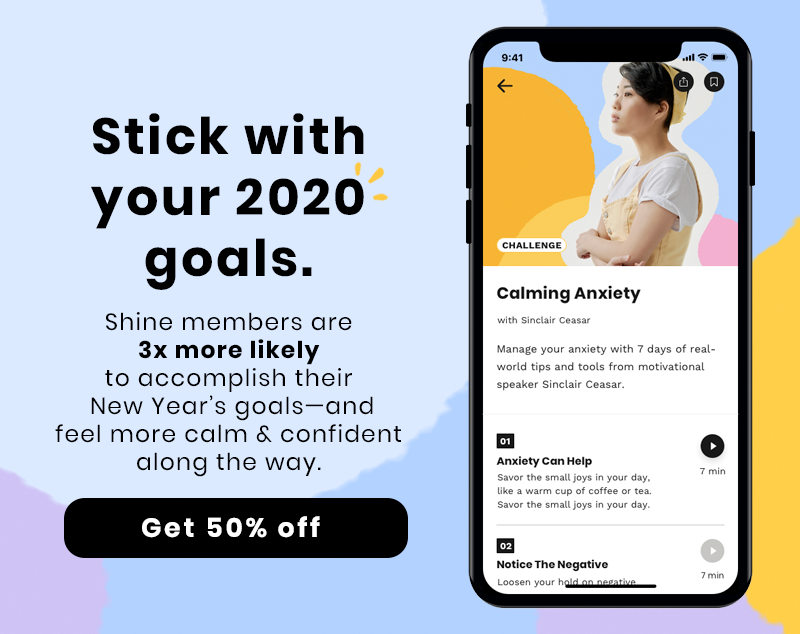5 Ways Being Vulnerable Can Make You Happier
Article by Patty Onderko
You can’t talk about vulnerability without first covering shame. We tend to think shame comes into play only when we do something morally reprehensible or criminal. But shame is much more inclusive and pervasive than that. Shame is a small word that crystallizes our most primal worries about being worthy. It encompasses self-doubt, insecurity, fear and anxiety. It’s no surprise psychologists call it the “master emotion” of everyday life, guiding our every action.
No one wants to feel shame. It’s a downright sick-to-your-stomach, yucky emotion. Most humans wear armor—think perfectionism or sarcasm—to shield against shame. When shame penetrates, we try to escape it with other distractions: our smartphones, drinking, video games, exercise, shopping. To do otherwise would leave us vulnerable, or “capable of or susceptible to being wounded or hurt.”
Shame is a small word that crystallizes our most primal worries about being worthy.
No one knows this process better than Brené Brown, author of Daring Greatly: How the Courage to Be Vulnerable Transforms the Way We Live, Love, Parent, and Lead and a researcher who has studied vulnerability for more than a decade. The problem with protecting and distracting ourselves from shame, she says, is that in doing so we protect and distract ourselves from the good emotions, too. “Vulnerability is the core of shame and fear and struggle for worthiness, but it appears that it’s also the birthplace of joy,” Brown says.
Just as you can’t lose weight in one part of your body, you can’t selectively numb one emotion, Brown says. When you’re feeling stressed, you’re not just suppressing anxiety, you’re sealing yourself off from wonder and gratitude, too. It can be difficult to be vulnerable in a world where toughness is exalted, but the only way to have a fulfilling emotional life, according to Brown, is to allow yourself to be vulnerable. Brown says people who embrace their vulnerability—she calls them “wholehearted”—are more compassionate, have better relationships and are happier. Here’s how to start opening up.
1. Recognize Your Vulnerabilities
Start by looking at what makes you feel angry, sad, self-conscious or annoyed, and find the common thread between these experiences. Once you identify these fears, you can start to counter them.
2. Know that Humans Are Wired to Feel Shame
“The only people who don’t experience shame have no capacity for human empathy or connection,” Brown said in her popular TED Talk on vulnerability. The feeling of not being enough is a universal, shared experience. Simply being aware of this can help you feel more comfortable letting your own guard down and engaging in authentic connection with others.
3. Identify Your Avoidance Tactics
People escape or numb their shame in different ways. Sometimes these avoidance tactics can become unhealthy daily habits or even dangerous addictions. The next time you are tempted toward one of your bad habits, wait five minutes. Think through what is going on and what you’re feeling during that time.
4. Find a Safe Spot
“Being vulnerable actually takes more courage and inner strength than people realize,” says Yvonne Thomas, Ph.D., a psychologist in Los Angeles. Which is why you probably don’t want to start your vulnerability journey on a first date. You want to know your feelings will be protected and cared for by the person with whom you share them, such as your parent, spouse or friend.
“Vulnerability is the core of shame and fear and struggle for worthiness, but it appears that it’s also the birthplace of joy.” - Brené Brown
5. Take Small Risks
“Vulnerability is ultimately a willingness to take a risk,” says Paul Coleman, Psy.D., a psychologist in Wappingers Falls, New York, and author of Finding Peace When Your Heart Is in Pieces. “Playing it safe will never be fulfilling.” Start with small risks, such as asking a co-worker for help with a project or trying a new class at your gym. The smaller risks build confidence for the larger ones.
This article originally appeared on SUCCESS.com.
Love journaling? We’d love to hear how journaling plays a part in your self-care routine. Take 2 for this quick survey?

Shine is supported by members like you. When you buy through links on our site, we may earn an affiliate commission. See our affiliate disclosure for more info.


